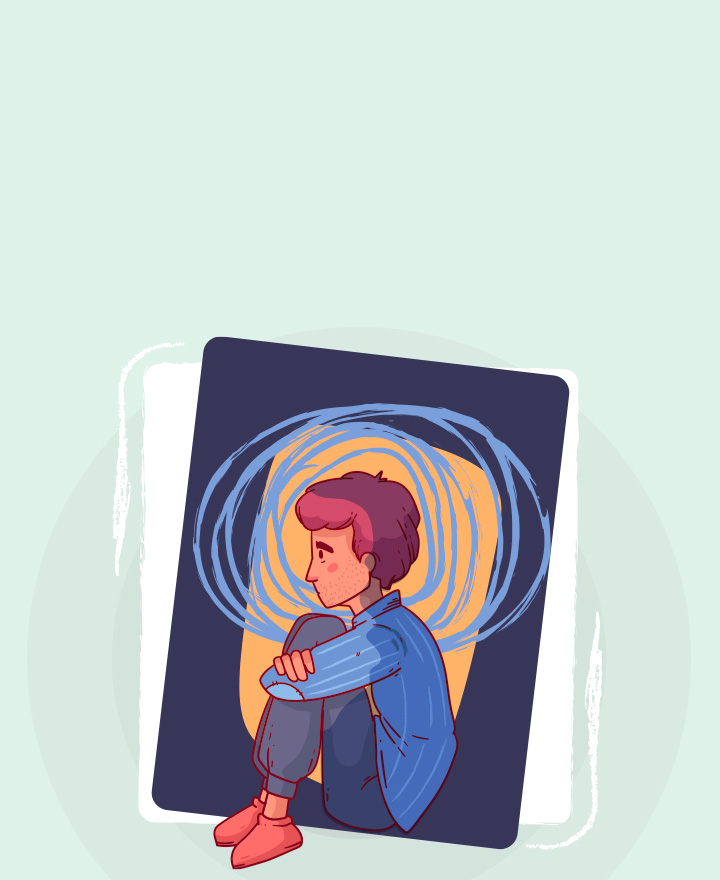

Post-Traumatic Stress Disorder: What You Need to Know
Post-traumatic stress disorder (PTSD) is a disorder that develops in some people who have experienced a shocking, scary, or dangerous event. With this article you will learn all that you need to know about PTSD. Read on:
What is Post-traumatic Stress Disorder?
Post-traumatic stress disorder (PTSD) is a mental and behavioral disorder that can develop because of exposure to a traumatic event, such as sexual assault, warfare, traffic collisions, child abuse, domestic violence or other threats on a person's life.
Symptoms
1. Intrusive memories:
This includes symptoms such as
• Recurrent, unwanted distressing memories of the traumatic event
• Flashback of traumatic event
• Nightmares about the traumatic event
• Physical reactions or emotional distress on things which remind about the traumatic event
2. Avoidance:
This may include symptoms such as
• Trying to avoid thinking about the traumatic event
• Avoid places, people or activities that remind of the event
3. Negative changes in thinking and mood:
This may include symptoms such as
• Negative thoughts about yourself as well as other people around
• Feeling of hopelessness about the future
• Difficulty maintaining close relationships
• Memory problems
• Feeling of detachment from loved ones
• Lack of interest in activities once enjoyed
• Feeling of emotional numbness
4. Changes in physical and emotional reactions:
This may include symptoms such as:
• Getting easily startled or frightened
• Trouble sleeping and concentrating
• Self-destructive behaviour
• Irritability, angry outbursts or aggressive behaviour
Causes
PTSD is probably caused by a complex mix of:
• Family history of anxiety and depression
• Stressful experiences, including the amount and severity of trauma one has experienced during their life
• The way brain regulates the chemicals and hormones which are release by body in response to stress
Diagnosis
When the above symptoms last for more than a month and cause significant distress and impairment, then it may be diagnosed as PTSD. In order to determine the diagnosis and to cope and recover from the symptoms, one must consult a qualified mental health professional.
Prevention
Getting timely help and support may prevent normal stress reactions from getting worse and developing into PTSD. This may mean turning to family and friends who will listen and offer comfort. It may mean seeking out a mental health professional for a brief course of therapy. Some people may also find it helpful to turn to their faith community. Support from others also may help prevent you from turning to unhealthy coping methods, such as misuse of alcohol or drugs.
Treatment
There are many effective treatments that can help people living with PTSD to cope with symptoms and recover. This includes:
• Cognitive Behavioral Therapy: This can help deal with reminders and emotions associated with the trauma & even help reduce maladaptive behaviour associated with PTSD.
• Exposure therapy: This therapy helps to learn how to effectively cope with distressing symptoms of PTSD like anxiety and avoidance by exposing you to memories and reminders of trauma.
• Eye Movement Desensitization and Reprocessing (EMDR): With guided eye movement, EMDR allows to process traumatic memories in a new and more positive way.
• Medication: This can help ease symptoms of PTSD and may improve the ability to participate in psychotherapy. The physician may prescribe anti-depressants, anti-anxiety, or other medications to help reduce sleep disturbances like nightmares.
• Complimentary therapies: Therapies such as animal-assisted therapy or trauma-sensitive yoga may be considered to be added to the treatment regimen.
Conclusion
Post-traumatic stress disorder (PTSD) is a mental health condition that's triggered by either experiencing or witnessing a traumatic event. Symptoms may include flashbacks, nightmares, severe anxiety, and uncontrollable thoughts about the event. Recognize the early warning signs and symptoms to seek medical attention to restore your psychological wellbeing.
Source: Webmd
Disclaimer: This blog provides general information and discussions about health and related subjects. The information and other content provided in this blog, website or in any linked materials are not intended and should not be considered, or used as a substitute for, medical advice, diagnosis or treatment. Kindly contact your Doctor before starting a new medicine or health regime.
Related Articles
What Is The Connection Between Heart Health And Stress?
Effective Ways To Keep Stress Under Control
Mental Stress Can Affect Your Body – Find Out How
Published on September 08, 2022

















 Health Insurance
Health Insurance  Travel Insurance
Travel Insurance  Car Insurance
Car Insurance  Cyber Insurance
Cyber Insurance  Critical Illness Insurance
Critical Illness Insurance
 Pet Insurance
Pet Insurance
 Bike/Two Wheeler Insurance
Bike/Two Wheeler Insurance  Home Insurance
Home Insurance  Third Party Vehicle Ins.
Third Party Vehicle Ins.  Tractor Insurance
Tractor Insurance  Goods Carrying Vehicle Ins.
Goods Carrying Vehicle Ins.  Passenger Carrying Vehicle Ins.
Passenger Carrying Vehicle Ins.  Compulsory Personal Accident Insurance
Compulsory Personal Accident Insurance  Travel Insurance
Travel Insurance  Rural
Rural